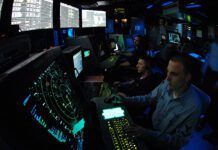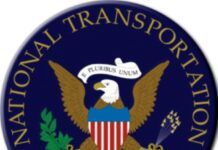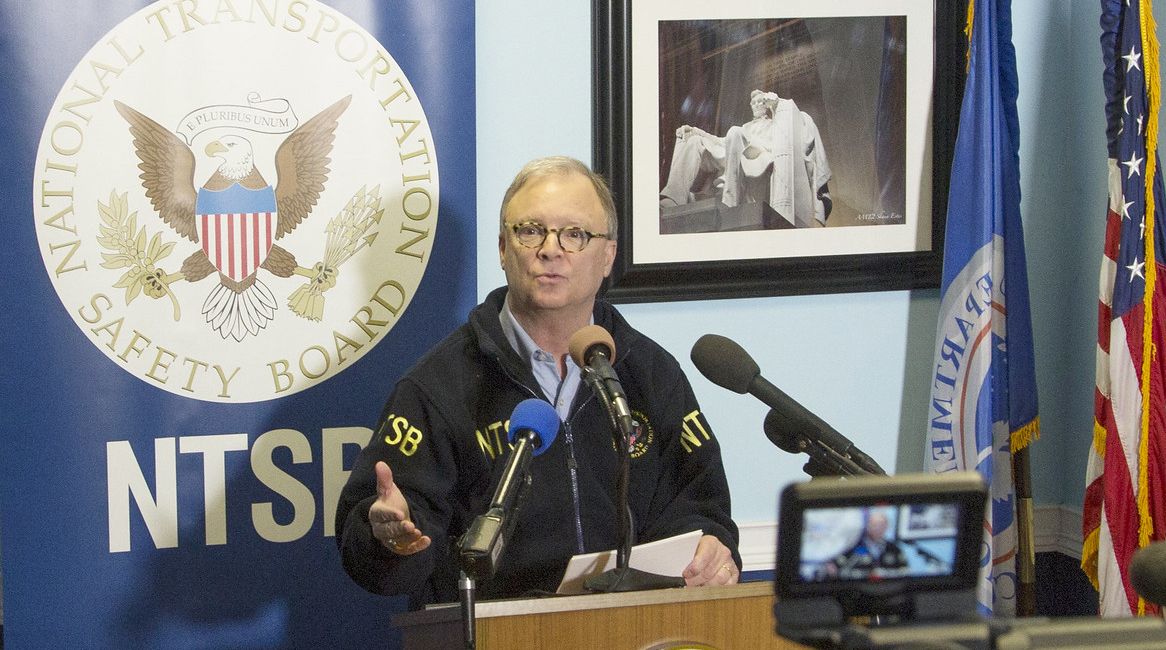National Transportation Safety Board (NTSB) Chairman Robert Sumwalt retired from government service on Wednesday after nearly 15 years with the Board. NTSB Member Jennifer Homendy has been nominated to succeed him in the position. Vice Chairman Bruce Landsberg will serve as the Board’s acting chairman pending Homendy’s confirmation by the U.S. Senate.
“The NTSB’s role is extremely important: by conducting thorough investigations, our work helps prevent accidents and crashes, reduces injuries, and saves lives,” said Sumwalt. “I’ve been honored to be part of this great agency, and to have served with the dedicated men and women of the NTSB.”
First appointed to the NTSB in 2006, Sumwalt took over as the NTSB’s 14th chairman in August 2017 and was nominated for a second term in August 2019. According to the NTSB, he responded to 36 accident sites during his time with the Board. A pilot for 32 years, Sumwalt has accumulated more than 14,000 flight hours and worked for airlines including Piedmont and US Airways.




































Another so so bureaucracy receiving media fan fare.. The Chairman ruled over the NTSB during a time when many investigations were conducted in a less then desirable manner.. He did OK holding down the chaos and circumventing politics.. My grade for the NTSB .. C+..
At least Sumwalt was a pilot. His successor is not. The NTSB track record for timely coming up with a probable cause has been dismal at best. Many have and are questioning NTSB’s ability to determine accurately the accident chain. No wonder the FAA ignores NTSB recommendations.
Now the NTSB will be guided by a person who has considerably less credentials relating specifically to aviation, and appears to be equally lacking in any other areas of transportation.
Uh, pilots do not know everything.
Technical expertise might be worthwhile.
A smart lawyer might ensure thoroughness, such as checking for CO in blood of dead persons – AU’s investigators failed to do that in one case, a doctor questioned their report, fortunately tissues were still available to analyze, CO in blood of pilot and front seat passengers. Cause was exhaust from a crack leaking through a botched reinstallation of an access panel in firewall.
As far as determining ‘probable cause’, be aware that investigations take thorough work to ensure things aren’t overlooked, that can take months or more.
Keith,
“Uh, pilots do not know everything. Technical expertise might be worthwhile.”
Specifically regarding aviation accident investigations, Sumwalt had piloting credentials, 14,000 hours, ATP, including airline experience. While he might not know everything about an airplane, or train, or car, or truck, etc…his aviation credentials were assets compared to his successor who has no credentials, with little experience in any of the above. While this position is mostly administrative, it is high profile with some public expectation or assumption of experience within the US transportation system. My personal expectations were a bit higher than having a moped license.
Since the NTSB employs over 500 people, I would like to think there is a combined experience that when properly applied would preclude requiring having lawyer credentials to be thorough. Of course, that would mean the NTSB Chairperson having enough transportation knowledge to properly delegate the responsibilities needed within an accident investigation.
I have personally assisted on three NTSB aircraft accident investigations and one FAA investigation. In all three of the NTSB investigations, they were as thorough as they could be following a checklist since they had very limited mechanical experience. That is why I was hired to assist. Investigations go relatively quickly. Its the analysis of the accumulated data ( sometimes a lot of data, many times very little) largely dependant on whether they bother to go see the wreckage. And those wreckage inspections get delegated by those in the more powerful admin positions. Many assume each wreck gets the same amount of detailed scrutiny. Wrong assumption.
Fortunately for the aviation side of NTSB, Vice-Chairman Bruce Landsberg is a high time pilot and instructor and an excellent administrator.